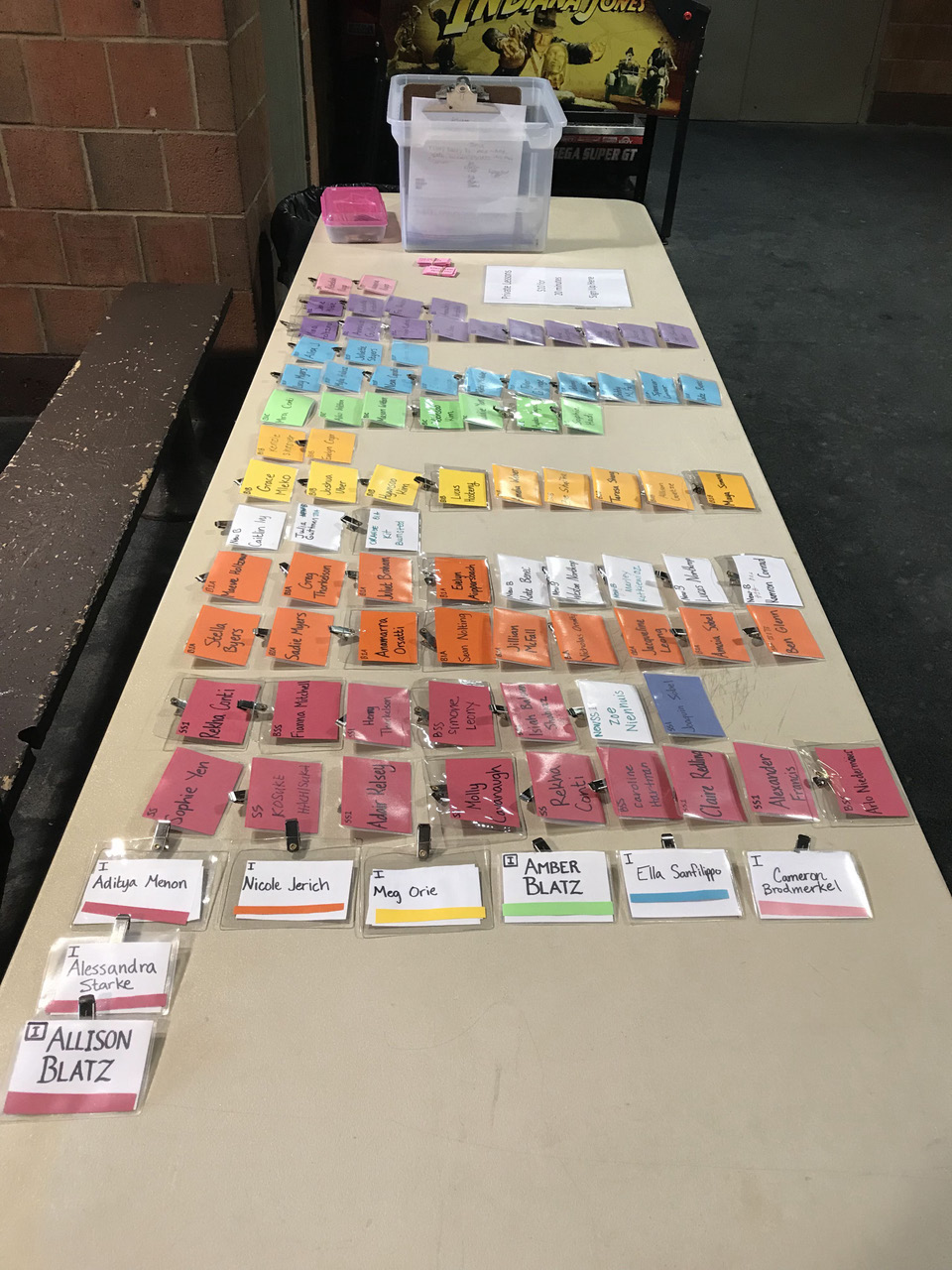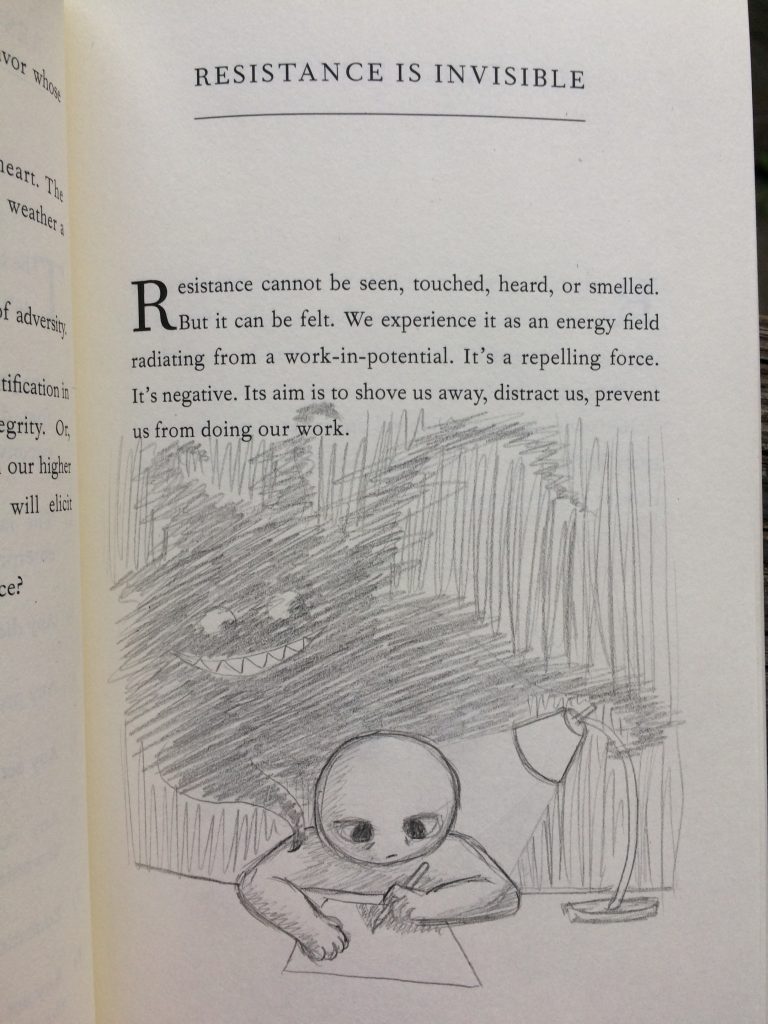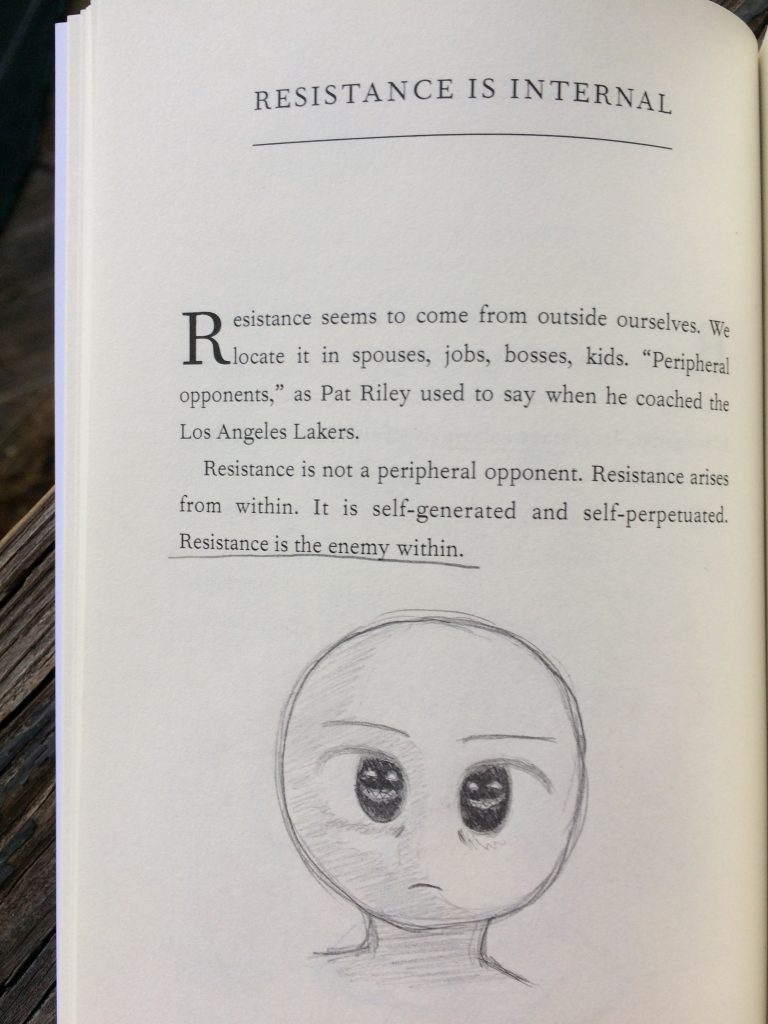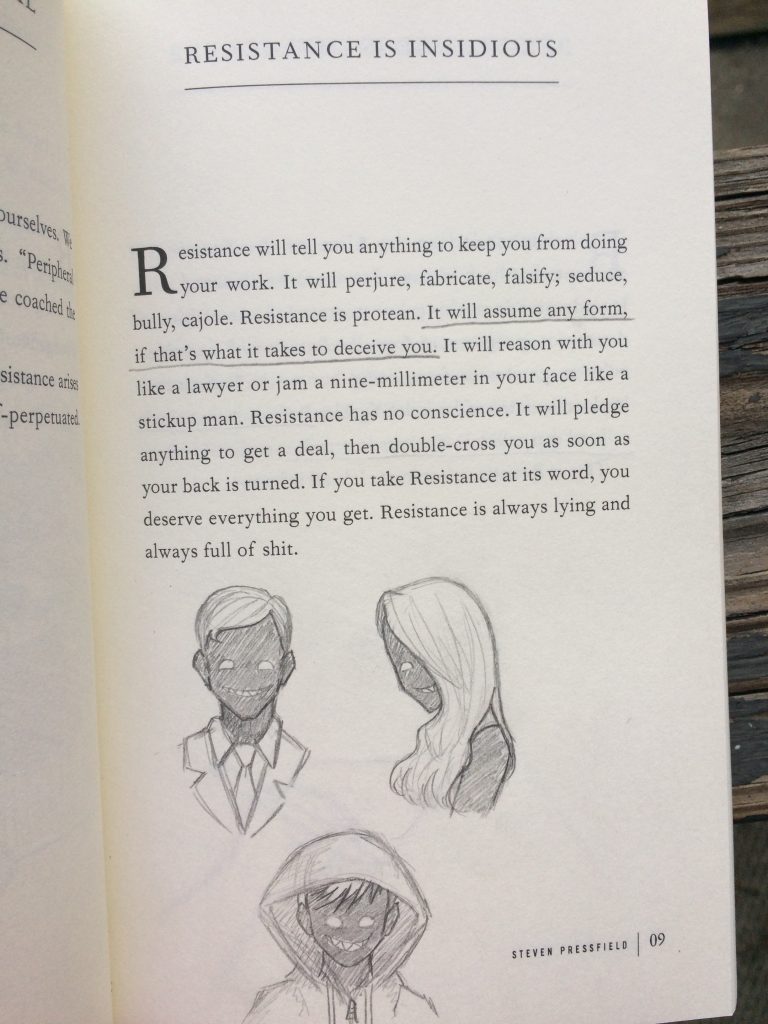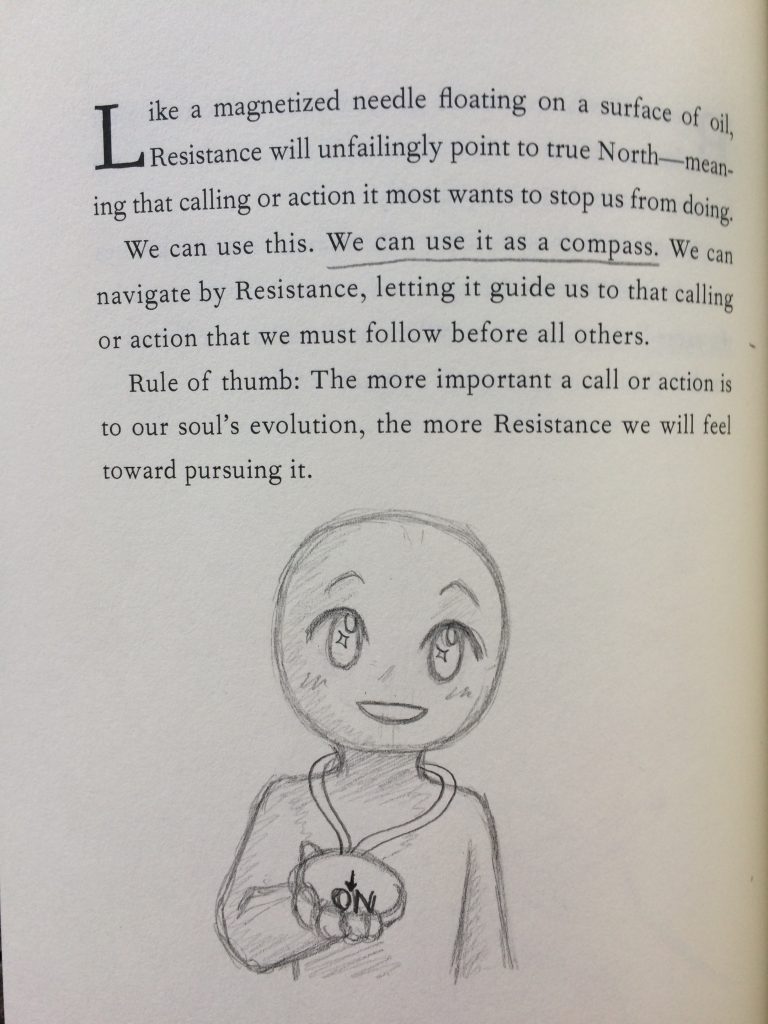I took this sales job at the beginning of 2018. I worked for an independent sales firm which specialized in doing door-to-door sales for huge companies that didn’t have the time to bother with such a thing themselves.
I decided to take a sales position for a few reasons. Most important of those was that I always knew that I had a major weakness in the area of social skills, and I wanted to improve at it. I figured that the best and most effective way of doing this would be to go somewhere that I was in way over my head. If you’re drowning, you only have two options: die or learn to swim. Knowing that, I walked in the door on my first day.
I’d made it through the interview process, which was as much a test of charisma as it was anything else. My father, for all he had failed dismally to pass it on to me, has always been able to exude massive charisma when necessary. And I knew from the interviews that from a charisma standpoint, I was in an office full of copies of my dad. Every single person could do backflips over the social stage, when I could hardly find the confidence to walk without tripping.
But despite all of this, I was ruthlessly determined. I was going to learn from these people, I was going to absorb this charisma that saturated the air, and I was going to come out of this experience stronger. That was the goal, I thought as I was shown into the main meeting room.
I learned that a conversation with a prospect was broken out into five main sections: the intro or elevator pitch, the questioning, the presentation, the rehash, and the close. On the first day, we learned the intro pitch, which I will probably still be able to recite many years from now. “Hi, how’s it going? So nothing crazy, my name’s Jenya, and I’m dropping by really quickly on behalf of Verizon. [Did I mention our main client was Verizon? It was.] We’ve done a ton of updates around here, helped out a bunch of your neighbors, and I’m just here to see how I can help you too.”
We dissected it based on what they called the “four factors of impulse”, which were as follows: Jones Effect, or the impulse to want what others have; Fear of Loss, or the fear of missing out on an opportunity; Sense of Urgency, or the importance of both the salesperson’s time and the prospect’s; and Indifference, or the necessity for a salesperson to not act like a salesperson, since prospects don’t trust salespeople.
I recited that pitch to myself in the car on the way home. I recited it as I was washing my face and getting ready for bed. I recited intermittently through the entire next day, which I had off. And by the day after, I had it solidly memorized.
Evidently, this was impressive and unusual. We practiced our pitches in the office the next day, and the more experienced salespeople were impressed. In the afternoon I got the opportunity to practice it “in the field”. I’d knock on the prospect’s door, introduce myself and also the person who was mentoring me, and after I finished the pitch, I would pass the proverbial baton to my mentor so they could keep talking with the prospect. That first day, we collectively made a sale, and I got to keep half the proceeds.
I was tentatively optimistic, but I refused to let my determination slip. Hearing “no” over and over wasn’t hard when I wasn’t doing much, but I imagined that when I was controlling the conversation, it would be harder. Still, the fact that a seasoned professional still got a ton of “no”s gave me some very useful perspective.
The next day, I learned the questions: a complicated decision tree based on what the prospect’s answers were. After “how many TVs do you have” was “do you use DVR”; if they said “no”, you moved on, but if they said “yes”, there were a number of so-called “deeper questions” that you had to ask about it. There was no such thing as a learning curve here: we still had only one day to learn this, but it was fifty times as complex as the pitch.
I took exceedingly prolific notes and stuck the notebook I’d taken them on into a bag. Every piece of paper, every chart and graph and magazine article that I was given, I stuck into that bag. It was my sales bag, and every time I needed anything, I could get it from there. When I got home every day, around 10pm (our shifts were 10am-8pm, and I had over an hour commute each way), I would review everything in my bag in detail. For this reason, I never had to be told anything twice.
I deep-dove into this so much partially just because that’s what I do, but also because I knew I had to make up for my lack of natural sociability. Growing up, I had been reprimanded a number of times for using the wrong tone, saying the wrong thing, or otherwise not intuitively knowing what to do in a social situation. I had absolutely no social sense, and so during this job, I asked a number of what they probably thought of as incredibly strange questions. How far away from the door should I stand? Where should I put my hands? How often should I make eye contact? What tone should I use during what segment of the conversation? All these sorts of ridiculously specific questions that they had probably never thought about, since they don’t think about what tone they use, they just use it.
But I asked these stupid questions, and I got better. I may not be able to intuit what to do in a social situation, but I can sure as heck analyze it to death and memorize every minute difference. So, just like my pitch, I analyzed the conversations. I analyzed my tone, eye contact, gestures, body language. I analyzed those things for the prospect, too. When I didn’t know something, I didn’t think about how dumb it was to not know it, I just asked. And I took liberal notes. Then in the mornings and evenings and during any other time when I wasn’t doing schoolwork (because remember I was in college too), I reviewed my notes. Use a low tone when stating facts. Avoid crossing your arms. Put one foot one step above the other when on a staircase. Take two steps away from the door after you knock. Use eye contact for emphasis when you’re talking, and during the whole time the prospect is talking.
After a few months, though, I noticed that I was stagnating. My peers were making sales on their own, but I wasn’t. I had learned everything I could, and I didn’t know what else I could do. I got frustrated. Not the kind of momentary frustration, the kind that spikes up when you spill a drink; this was a long, drawn-out frustration that seeped into my mind over the course of these stagnant weeks, when I was walking six miles up and down peoples’ doorsteps, knocking on a hundred and fifty doors, working a twelve-hour day, and coming home long after it had gotten dark with nothing to show for it all.
To make it worse, around this point, my greatest mentor quit. He had been the greatest help to me overall: he gave detailed explanations of what to do in each specific situation, he knew like a good coach exactly what I was doing wrong and how to fix it, and he communicated clearly. Not only that, he was a delight to have around, and he was consistently one of the people in the office who made the best numbers.
Even after all of this it was hard for me to get up the nerve to quit. I had known from the get-go that I wasn’t suited for a long-term career in sales, but I didn’t want to be one of those people who just quit when the going got rough. It took a long conversation with my mother about priorities for me to see past this. I went into this with the goal of improving my social skills, and I had succeeded. Yes, it would have been nice to make more sales, but at the end of the day, this wasn’t what I wanted to do professionally. I didn’t need to be frustrated with my lack of success in something I’d only gone into in the first place because I knew I would be awful at it. So soon after, I handed in my resignation.
The lessons I learned from this tough period follow me to this day. Through this process I learned what it’s like to be literally the worst person in a group at something. Growing up, I’d never had that opportunity, since I was always in the top 1% of everything (I’m one of those weirdos that thrived naturally in the school system). It was hard to be the worst, but it was also useful: I could learn from literally everyone.
I learned grit and determination. The experience created for me a crazy high benchmark that I can always compare future stressful events against. No matter what I go through, I can think, “this is easier than taking multiple extremely difficult classes, none of which I find fun or satisfying, on top of having a full-time job that I suck abysmally at; as such, I can get through this.”
I learned how to be cheerful no matter what. Growing up a performer, I thought I knew how to be cheerful in the extremes of misery: after all, I went out in -10º weather, in the snow and freezing rain, in a skimpy leotard, skated around a sheet of ice at 30+ mph for five or six minutes at a stretch, and had to make it all look easy.
Sales made that look like a walk in the park. I walked around neighborhoods in the snow and freezing rain, not for six minutes, but for six hours. I walked up and down many flights of stairs in the grueling heat, too; something I never had to do as a figure skater. And when I got to peoples’ doors, I couldn’t grimace in the slightest. Unlike in skating, where the audience sees you from fifty feet away and won’t notice a tiny crease in your brow, your prospect will see you from two feet away. They will notice.
I also learned how to take “no” for an answer, and in fact to take it in stride. Just because of how the numbers play out, even the best salesperson in the world won’t be able to get a “yes” from every single prospect. There will be people who, say, work for Comcast and get their internet for free. There will be people who slam the door in your face. And you just have to deal with that, don’t let it shake you, and move right along. Next to their name on your list, write “110” and put a diagonal line between the 1s.
But most importantly, I learned how to sell. I learned the details of how the sales funnel works. I learned how to direct a conversation. I learned the difference between a legitimate “no” and a “no” that comes only from a fear of change. I learned how to make smalltalk (a surprisingly huge part of sales!). I learned to speak and persuade off-the-cuff.
Sales would have been an awful career choice for me, but taking a sales job anyway was one of the most useful experiences of my life.
